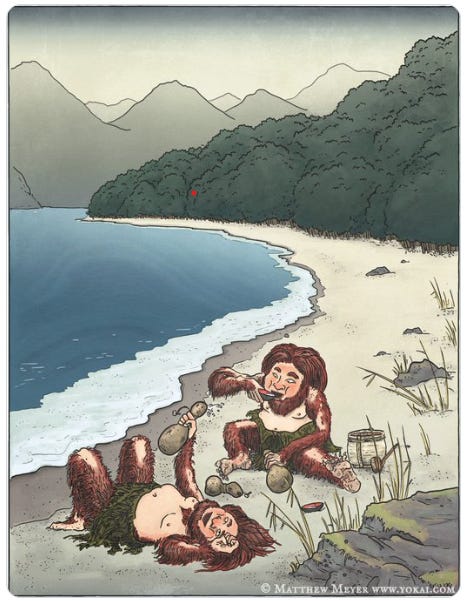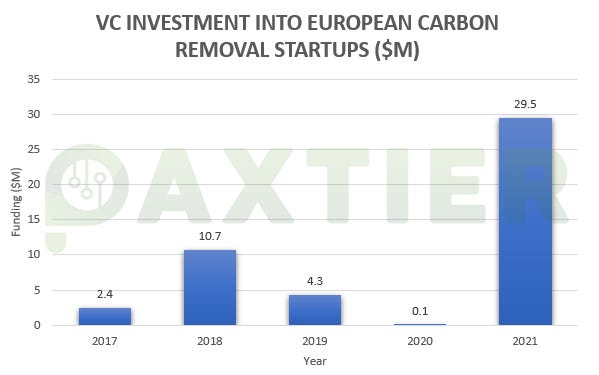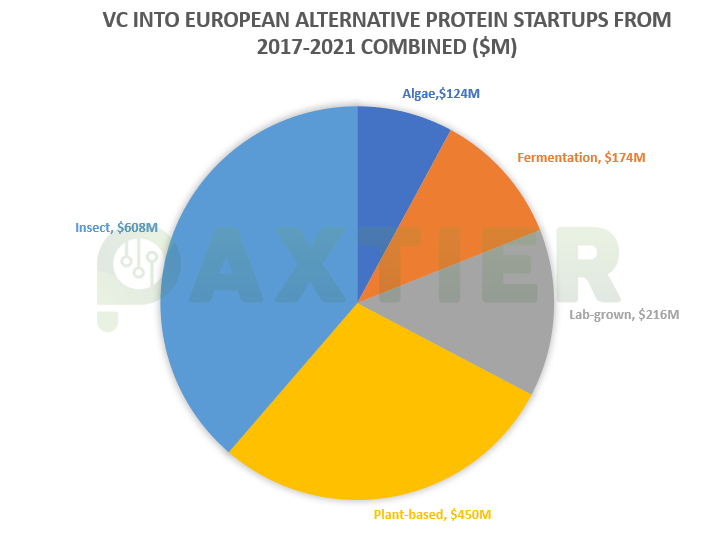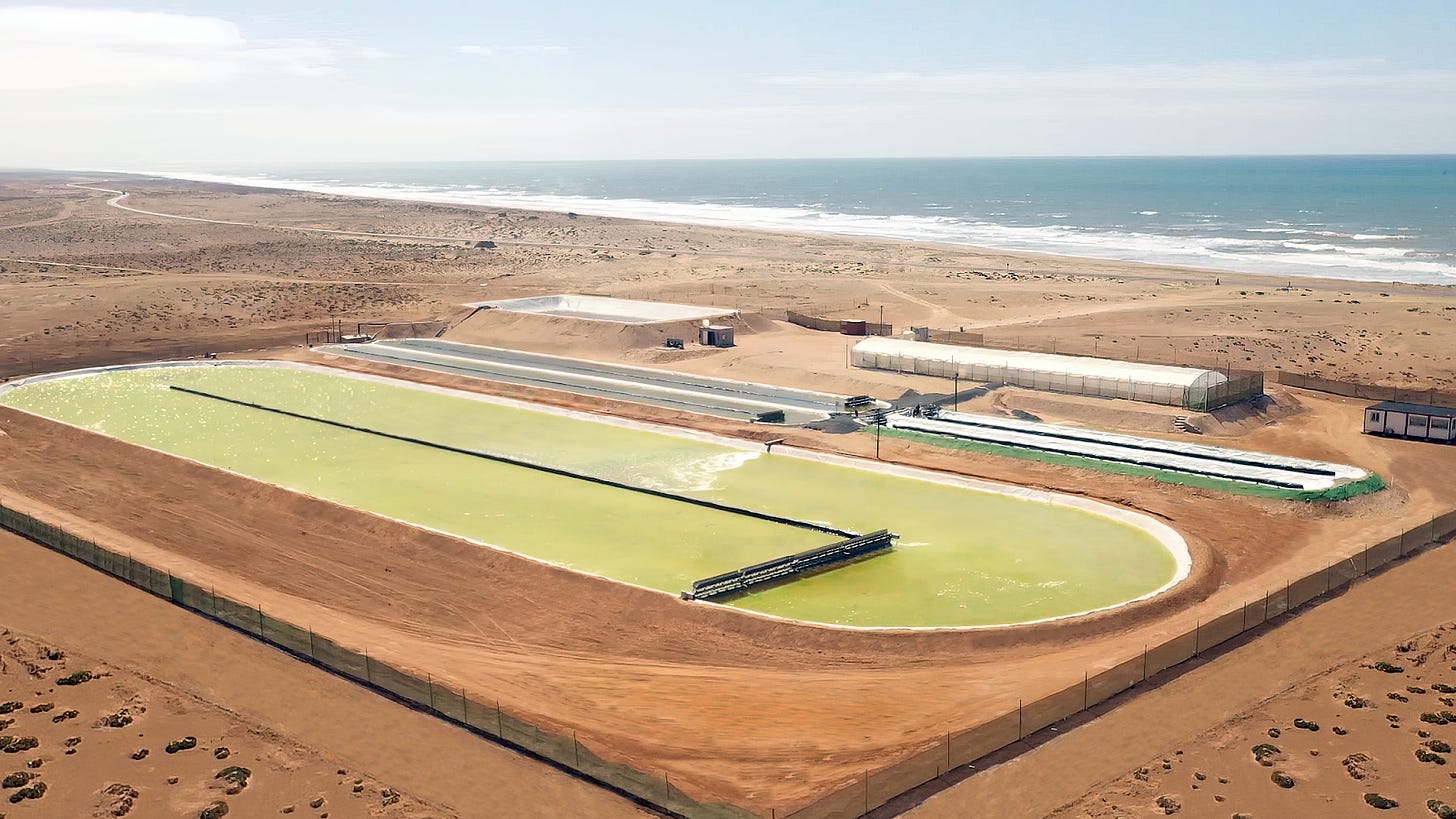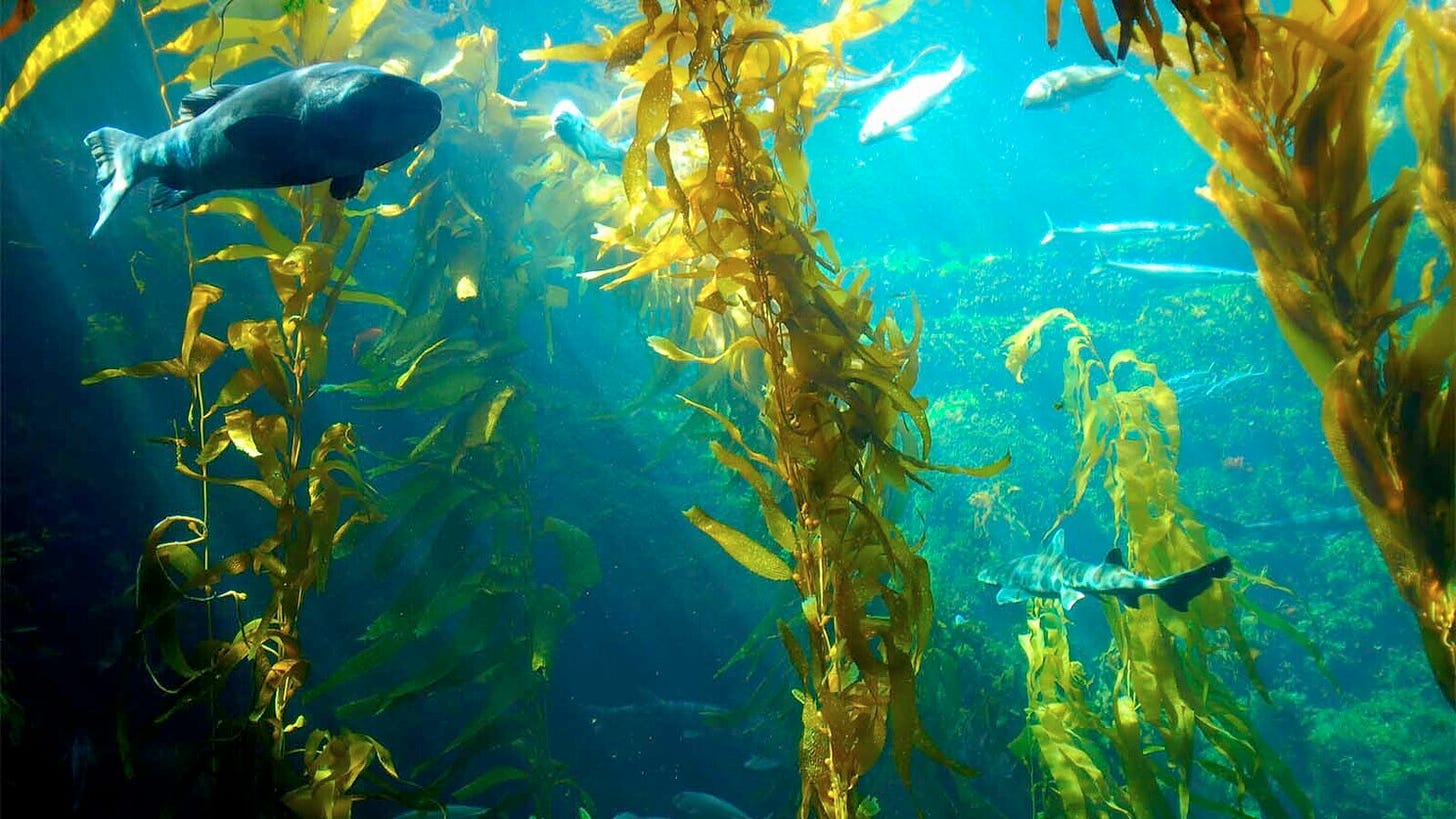“Understanding your values and partnering with others based on values is a superpower. It comes down to that old saying: if you want to go fast, go alone. If you want to go far, go together.” — Clare Bradley, AgriSea, Algae Tech
Dear algae technologists,
Hello and welcome to The Paxtier Report for Wednesday, April 13th 2022!
To start this report, I’d like to introduce you to some shōjō:
Shōjō are fairies from Chinese and Japanese mythology.
It is said that they spend their lives drinking large quantities of alcohol and playing in the sea and sand of secluded beaches.
Most notably, they are known for their fondness for sake, their peaceful demeanour and their elegant skirts made from seaweed.
In today’s report:
News: Brilliant Planet raises $12m.
Chart: VC’s put $124m into European algae alternative protein teams.
Epic: Scientists create the world’s largest digital map of kelp forests.
Fireside chat: Larsen Mettler from S2G Ventures.
Around the web: Stripe’s Frontier Fund will spend US$925 million for carbon removal.
Markets and Investing
This week was massive for climate investing as Voyager Ventures launched a $100M fund for early-stage climate technology companies, Border to Coast showcased a new £1.35 billion Climate Opportunities offering, and the Scottish Government presented their £5m“CO2 utilisation challenge fund” to boost carbon capture technology in Scotland.
What’s more, Stripe, Alphabet and Meta today announced their new public-benefit corporation called Frontier Fund, which will spend upwards of US$925m buying offsets from carbon dioxide sequestering start-ups.
In other news, Dealroom also took to the stage this week by publishing a super cool report about European climate tech. Take note of the huge increase in European carbon removal funding between 2020 and 2021…
… and how alternative protein funding compared…
On the subject of algae, here were some of the biggest moves we saw this week:
For starters, DIC Corporation signed a second joint development agreement with Checkerspot to engineer new skin care and personal care applications derived from microalgae. These teams are long-standing partners, but their continued alliance and plan to develop the microalgae sector is awesome.
This news was followed by updates in the sustainable aquaculture sector as Aqua-Spark announced their investment in Kuehnle AgroSystems (KAS). KAS hope to use these funds to scale their algae astaxanthin production process, and here’s what CEO, Dr Claude Kaplan, had to say:
“KAS have been working on the development and commercialisation of our algal natural astaxanthin for over five years. With Aqua-Spark coming on board, we can now fully exploit the opportunity to bring our novel, affordable, sustainably produced astaxanthin to the salmon and shrimp markets and, ultimately, replace synthetic astaxanthin. We are extremely excited to work with Aqua-Spark, and their other portfolio companies, and to be able to tap into their vast expertise and networks as we look to bring our aquafeed and nutraceutical products to market in 2022.”
To cap it all off in algae tech this week, Brilliant Planet stole the show by raising $12m for their coastal desert algae sequestration operations:
During a recent chat with CTVC, CEO Adam Taylor said this about Brilliant Planet’s algae technology:
There are two core innovations to our solution. The first is how to maintain algal bloom physiology – those exceptionally productive periods – all year-round in a natural low-cost system rather than just as seasonal phenomena in the ocean. The second innovation is doing this in the desert. Deserts are large, dry, and barren. Size offers the potential for tremendous scale. Aridity, combined with a very high salt content in our biomass, enables thousand-year permanence for biomass storage (check out the Tarim Basin mummies of the Taklamakan desert as a great example of how desert conditions preserve biomass!) Finally, desert locations make our system economically additive in these rural, low productivity areas.
We were super excited about this update, but it left us wanting more. Namely:
Who was behind this deal?
And why did Brilliant Planet bring them on board?
Our call with Larsen Mettler from S2G Ventures held the answers.
In Depth Algae Tech With Peter Green
 Fireside chat: Larsen Mettler, S2G Ventures
Fireside chat: Larsen Mettler, S2G Ventures
Larsen Mettler is Managing Director at S2G Ventures, one of the multi-stage venture funds which invested in Brilliant Planet alongside Union Square Ventures, Toyota Ventures, Future Positive Capital, AiiM Partners, Hatch and Pegasus Tech Ventures.
In this edited conversation, Larsen spoke about his experience leading the Oceans and Seafood fund, his outlook on algae tech, and the arrival of new funds in the oceans and seafood space.
What role do you think algae and seaweed will play in the future of climate?
This subject area is vastly understudied and not well understood. Using macroalgae for burgers and regenerating ecosystems is just the tip of the iceberg. We must remember that all land plants came from sea plants. These are the building blocks of life and there’s going to be a huge unlocking of potential here.
I’m interested to see if someone will build a seed bank for both macro and micro algae. It’s important to categorize these plants, study their full potential, and protect them for the future.
What lessons have you learned from your first investments at S2G?
It depends on what series and sector we’ve invested in. However, a common theme for companies in this space is product-market fit. Specifically, can the product or service scale and will it be adopted by big players in a meaningful way? We like to sit down with entrepreneurs and tell them that it’s okay if they pivot along the way.
A second challenge comes in the form of human capital. These are such novel technologies and services. You can’t just go out and easily find someone with loads of direct experience.
What advice might you give to others just starting out in this space?
It often boils down to having a beginner’s mindset. I received this advice from one of my colleagues, Chuck Templeton. Approaching every idea with an open mind is critical. If you surround yourself with good, hard-working people with that mindset, you can be successful.
You can check out the full article HERE.
 Algae Tech Research Review: Using Game Theory for Blue Carbon
Algae Tech Research Review: Using Game Theory for Blue Carbon
In this cool paper , Wang et al. use evolutionary game theory to explore how blue carbon trading of marine ranching can play out in China.
Given the still immature carbon trading markets, emission markets and carbon tax standards in China, the overall aim of the research is to improve the country’s carbon pricing policy.
To do that, they explore how algae farming and marine ranching, an eco-friendly fishery development model, can contribute.
Despite positive results, they conclude that meaningful change can only occur if local governments adequately subsidise blue carbon.
 What else was hot in algae-tech this week?
What else was hot in algae-tech this week?
- Indonesia prepares to sue Thai petroleum company over 2009 oil spill. The spill damaged the livelihoods of many Indonesian seaweed farmers and a previous ruling suggested that the company in question (PTTEP) could pay more than $262 million in compensation.
- (Paper) Microbial oxidation of atmospheric trace gases – Nature.com
- Symbrosia appoint new COO Avery Kramer to scale algae production for methane reduction.
- Scientists have created the world’s largest digital map of kelp forests, a potentially powerful tool to track the health of these underwater rainforests. Check it out HERE.
- (Paper) Bovine host genome acts on rumen microbiome function linked to methane emissions – Nature.com
- (Paper) Effect of productivity and seasonal variation on phytoplankton intermittency in a microscale ecological study using closure approach (Nature.com – see HERE)
- Marinomed Biotech AG have signed a new agreement to out-license a Carragelose-based nasal spray for the South Korean market. Carragelose(R) is a sulfated polymer from red seaweed and a unique, broadly active virus-blocking compound. The exclusive license partner in this instance is Hanmi Pharmaceutical.Tweets of the week
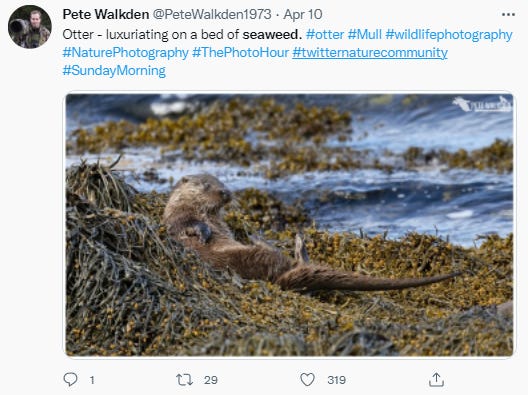
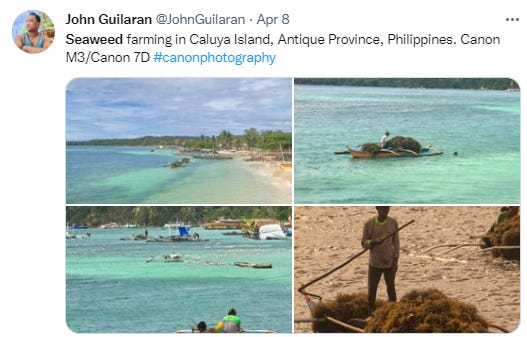
Events
Seaweed Innovation in the UK – Webinar & Networking
Extra interesting titbits from climate tech:
- Climeworks raise a massive $650m for their direct air capture company
- Terradepth raises another $20 million to map the ocean floor with robots
That’s all folks!
Thanks again for joining us this week. Hope you have a great day and stay tuned for more algae tech updates soon!
Peter, A

